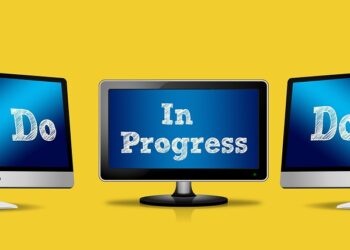Hey there, recent graduates! Congratulations on stepping into this exciting new chapter of your life. You’re probably feeling a mix of excitement and maybe a little overwhelming confusion now that you’ve received your first salary. How do you budget? Should you save or invest? And what about that student debt?
You’re not alone in feeling this way; many others share your concerns. In this article, we’re going to tackle what a fixed mindset for finances means, how it impacts your wealth, and provide you with some practical steps to build healthy financial habits early on. Let’s dive into it!
Understanding the Fixed Mindset
What is a Fixed Mindset for Finances?
A fixed mindset is a term coined by psychologist Carol Dweck, usually describing a belief that abilities, intelligence, and skills are static and unchangeable. When it comes to finances, this mindset manifests in a few key ways:
- Believing Financial Skills Are Innate: You may feel like you’re either born good with money or not—there’s no middle ground.
- Avoiding Challenges: Instead of trying to learn about investing or budgeting, you might shy away from these topics, assuming you’ll never get them right.
- Feeling Threatened by Feedback: If someone offers you financial advice, you might take it as a personal attack rather than a chance to grow.
This mindset can lead to missed opportunities in building healthy financial habits and can hold you back from achieving your financial goals.
The Impact on Your Wealth
So, how does this fixed mindset negatively impact your finances? Here are a few ways:
- Stagnation in Learning: If you believe you can’t improve your financial situation, you won’t seek out new information or strategies.
- Fear of Change: You may feel stuck with approaches that don’t work for you, like only saving money but never investing it.
- Negativity Toward Financial Risk: A fixed mindset may lead you to avoid taking calculated risks, like investing in stocks, which could benefit your wealth in the long run.
It’s essential to shift from a fixed mindset to a growth mindset, allowing you to embrace learning, change, and challenges while managing your finances.
Practical Steps to Overcome a Fixed Mindset on Finances
Step 1: Educate Yourself
Knowledge is power! Start by learning the basics of personal finance, such as:
- Budgeting: How to track income and expenses.
- Saving: The importance of having an emergency fund.
- Investing: Understanding the different types of investments available.
Here are a few resources to help you get started:
- Books: “The Total Money Makeover” by Dave Ramsey for budgeting.
- Podcasts: “The Money Guy Show” for straightforward financial advice.
- Online Courses: Websites like Coursera or Khan Academy offer free financial courses.
Step 2: Set Small, Achievable Goals
Instead of looking at your finances as an overwhelming challenge, break it down into smaller, manageable tasks. Try the SMART goal method:
- Specific: “I will save $50 this month.”
- Measurable: Keep track of your savings.
- Achievable: Make sure it’s realistic.
- Relevant: Relate goals to your larger financial objectives.
- Time-Bound: Set a deadline.
By celebrating small wins, you’ll cultivate a mindset of growth and achievement!
Step 3: Seek Guidance and Feedback
Don’t shy away from asking for help! Consider reaching out to family members, friends, or even online communities focused on personal finance. Accept feedback with open arms; it’s an opportunity for growth, not a criticism of your current abilities.
- Mentoring: Find someone with more financial knowledge to guide you.
- Support Groups: Join a forum or a local group where you can discuss finances openly.
Step 4: Embrace Risks Wisely
Remember, financial growth often involves risks. Start with calculated decisions—invest a little in stocks or a retirement fund. Over time, you’ll see how taking measured risks can lead to greater financial rewards.
- Test the Waters: Consider investing small amounts in a diversified portfolio or mutual funds to begin with.
Conclusion & Call to Action
To wrap it all up, shifting from a fixed mindset to a growth mindset for your finances can drastically improve your approach to wealth-building.
Key Takeaways:
- A fixed mindset limits your financial potential.
- Educate yourself, set small goals, seek guidance, and embrace calculated risks.
- Celebrate your achievements, no matter how small!
Now, here’s your actionable step: Pick one financial concept you’ve learned about today (like budgeting or saving), and spend just 10 minutes researching it further. You’re already on the right track to building a healthier financial future!
Stay motivated, and remember: your financial journey is just beginning, and you’ve got the power to shape it!












